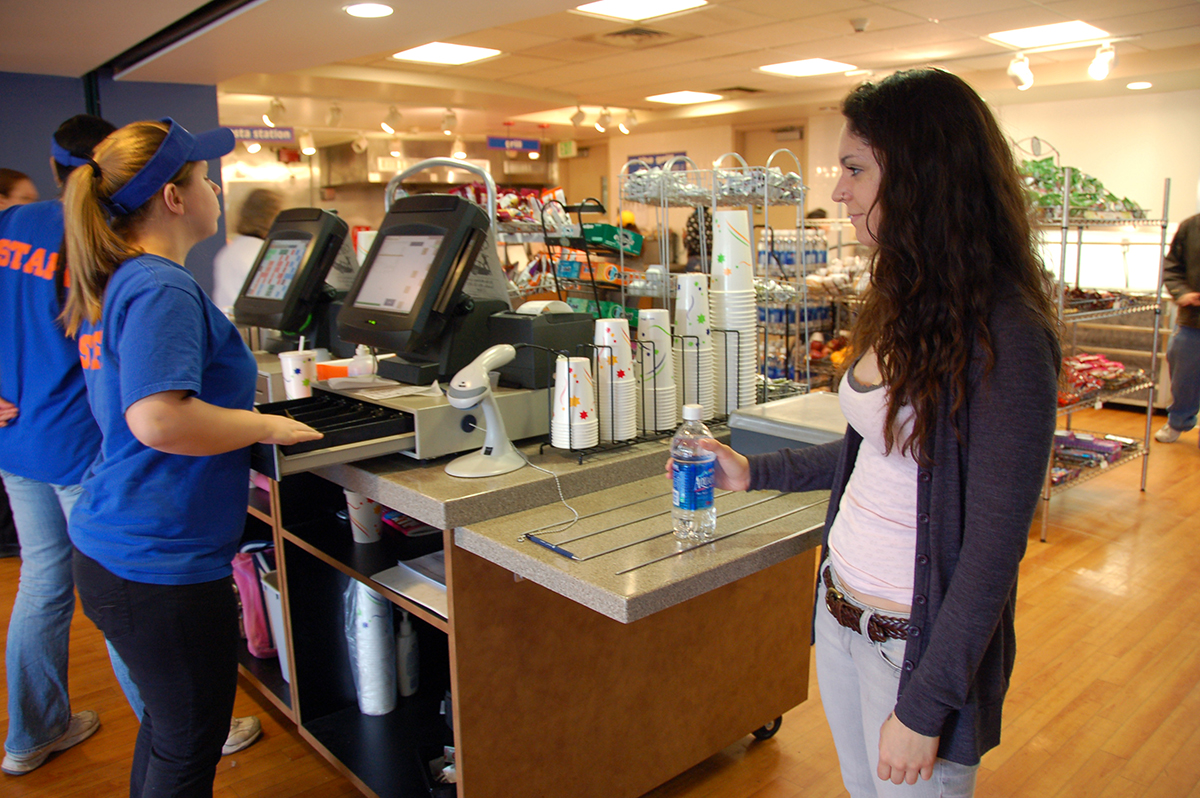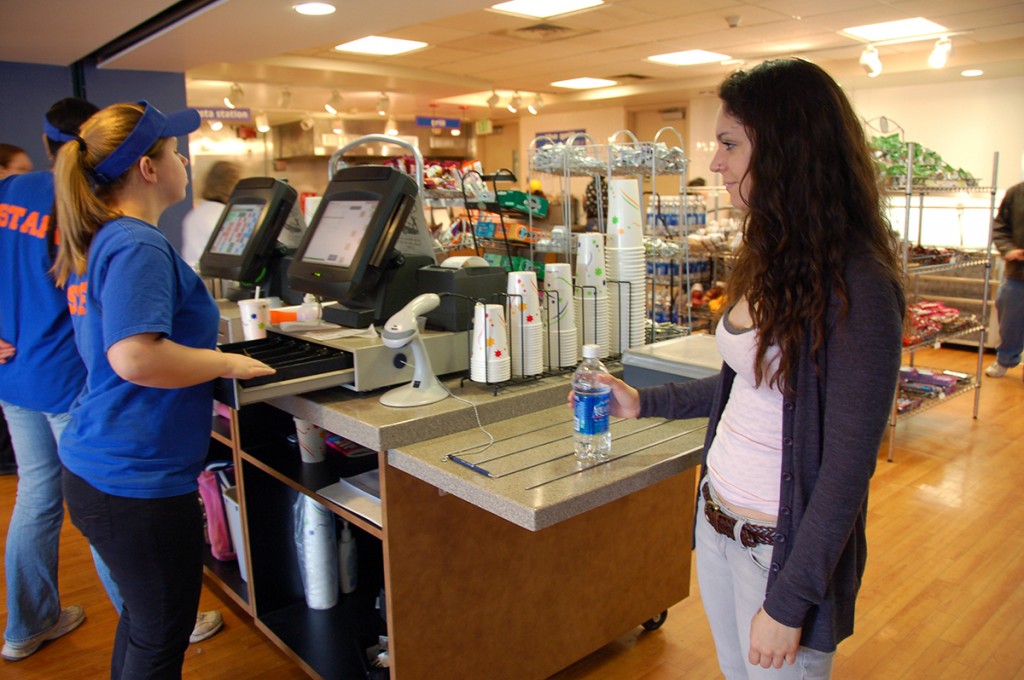

The Campus Auxiliary Services (CAS) Board recently discussed an initiative to ban the sale of water bottles on campus.
According to Jonathan Freifeld, who sits on CAS Board, the discussion of a water bottle-free campus is in the preliminary stages and there is no plan for implementation to move forward.
He said if the idea were to one day become a reality, it could potentially cause CAS to take a financial hit because of contractual agreements the college has with Pepsi.
“It would be breaking our agreement with Pepsi,” said Freifeld. “They were unable to tell us exactly how it would affect us at our last meeting, but they provide money to CAS so [it] would take a hit.”
Student Association Executive Vice President Eve Stern said the quality of drinking water in New Paltz would need to be thoroughly examined and reported on to CAS in order for any decision to be made.
She said she would also like to see a water filtration system available in multiple locations on campus.
“If we’re going to take away bottled water we need to have other alternatives available for our community,” Stern said. “Most importantly, we need to send out surveys and hold forums to get feedback from our community.”
Stern said she would like to see students utilize reusable water bottles, which could be filled around campus from water fountains or filtered water stations.
Resident Hall Student Association President-elect Ranysha Ware said she brought the idea to CAS Board because she believes water bottles are a waste.
“Companies like Pepsi – they’ve frightened us to think that tap water is a disgusting thing and we need to buy bottled water,” Ware said. “I feel like it’s really wasteful on our part, especially for a green school to consume so much bottled water.”
Stern said the college’s contract with Pepsi would need to eventually be changed, which could cause a surge in charges. However, the college would still be required to sell bottled water at Seattle’s Best for contractual reasons.
While she believes removing bottled water would be more sustainable, Stern said she would not push for the idea unless a majority of students were for it.
While there are groups on campus who are against plastic water bottle use, Freifeld said they will continue to be bought and consumed.
“There will always be people who want to use water bottles to drink from, whether or not the idea is implemented on campus,” he said. “They will just get them from off campus sources such as supermarkets.”
